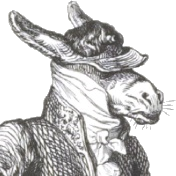|
Don't tell me I'm the first one to have to say Shattered Sword  Edit: Couple recommendations that not everyone has heard of- Red Eagles: America's Secret MiGs, by Steve Davies. A very interesting book that talks about the evolution of American fighter pilot training in the post-Vietnam era, and more specifically how American trainers utilized stolen Soviet fighters and tactics to give pilots practical combat training experience and other hard lessons learned from the skies over Vietnam. Command and Control: Nuclear Weapons, the Damascus Accident, and the Illusion of Safety, by Eric Schlosser. An utterly horrifying book about the history of America's nuclear program. A great read if you don't plan on sleeping that night. Acebuckeye13 fucked around with this message at 01:43 on Aug 9, 2017 |
|
|
|

|
| # ? May 24, 2024 23:56 |
|
Acebuckeye13 posted:Don't tell me I'm the first one to have to say Shattered Sword I was under the impression that pop histories were not being considered, because Last Stand of the Tin Can Sailors was not brought up, either.
|
|
|
|
Oh, I thought it was just anything. 1491 is pop history for sure.
|
|
|
|
Jobbo_Fett posted:Post book recommendations, I'll start a spreadsheet. Swords Around A Throne / Napoleonic / How the Grand Armee worked / the Grand Armee was incredibly important to future development of the military art and was fuckin rad, also this is the authoritative work on it / kyoon griffey jr said this edit: Tameichi Hara, Japanese Destroyer Captain. A good look at the other side, very self critical, with good insights in to how the IJN worked KYOON GRIFFEY JR fucked around with this message at 01:54 on Aug 9, 2017 |
|
|
|
Check the original post, it's just book recommendations. We're just lucky enough to have some academic historians in here  Some other good books: Armored Thunderbolt by Steve Zaloga. A well-written and well-researched history of the development, deployment, and legacy of the M4 Sherman Tank. Commanding the Red Army's Sherman Tanks, by Dmitriy Loza. A nice memoir to pair with other books about the Sherman tank, as Loza offers a very unique perspective compared to the traditional analysis of the Sherman on the western front. Also worth pairing with his interview on I Remember, where he addresses some questions about the book as well as a number of other recollections. Also, if we're allowing historical fiction based on the author's personal experiences (Don't think I didn't spot The Things they Carried), then put me down for recommending Catch 22 by Joseph Heller. It's funny, it's sad, and it really captures and highlights the personaltiies of the men who went to war-the good, the bad, and the utterly absurd. Acebuckeye13 fucked around with this message at 03:49 on Aug 9, 2017 |
|
|
|
Davin Valkri posted:I was under the impression that pop histories were not being considered, because Last Stand of the Tin Can Sailors was not brought up, either. Still, we have more than serious historians in this thread and Shattered Sword, Tin Can Sailors, and Neptune's Inferno all deserve recommendations for anyone interested in WW2 in the Pacific. Shattered Sword in particular, as far as I know, is the only English language work on Midway that seriously engages with and uses Japanese sources and focuses on the Japanese side of the battle.
|
|
|
|
Can someone transfer control/ownership of a Goodreads group? I mainly ask because I set up one a while back that has a bunch of goons in it, and I am pretty sure it would fare better in someone else's hands.
|
|
|
|
Davin Valkri posted:I was under the impression that pop histories were not being considered, because Last Stand of the Tin Can Sailors was not brought up, either. How/why would Shattered Sword be considered pop history?
|
|
|
|
I think pretty much every book I posted wpop pop history by that standard
|
|
|
|
FAUXTON posted:Can someone transfer control/ownership of a Goodreads group? I'd be willing to take over the Goodreads group. I'm the guy with a picture of Nic Cage as his avatar there.
|
|
|
|
The only thing I'd say about shattered sword is that it doesn't have a lot of firm methodological commitments. Anyway let's also throw Looking East From Indian country on there Disinterested fucked around with this message at 03:47 on Aug 9, 2017 |
|
|
|
|
gradenko_2000 posted:How/why would Shattered Sword be considered pop history? It's been read by more than six people
|
|
|
|
Solaris 2.0 posted:If we are on book chat may I also recommend "Ho Chi Minh: A Life by William Duiker"? It's the book that really got my interested in Vietnamese history and culture.
|
|
|
|
Biffmotron posted:I'd be willing to take over the Goodreads group. I'm the guy with a picture of Nic Cage as his avatar there. Looks like you gotta verify your email address with goodreads!
|
|
|
|
FAUXTON posted:Looks like you gotta verify your email address with goodreads! One more time into the breach!
|
|
|
|
The really interesting thing to me about Vietnam politically is how symbolic and not relevant both Ho Chi Minh and Giap were in the war, and also how French prison was, much like the modern middle east, a training camp for insurgent leaders. Your credibility was heavily determined by how much time you did in French prison and they had seminars on Marxism and anti colonial theory as well as practical things in prison.
|
|
|
|
|
Apologies in advance if some of the books I suggest sadly have printed images instead of the glossy kind with colour. It is a shame I know.
|
|
|
|
|
Biffmotron posted:One more time into the breach! all set! https://www.goodreads.com/group/show/133084-goons-and-their-military-history
|
|
|
|
KYOON GRIFFEY JR posted:Swords Around A Throne / Napoleonic / How the Grand Armee worked / the Grand Armee was incredibly important to future development of the military art and was fuckin rad, also this is the authoritative work on it / kyoon griffey jr said this
|
|
|
|
FAUXTON posted:Can someone transfer control/ownership of a Goodreads group? This is an odd coincidence, I'm the mod on the book barn goodreads group. https://www.goodreads.com/group/show/2686-book-barn-goons We are attempting to revive it at the moment, and bring the challenges more in line with SA's, because people keep adding each other to friends and then forgetting about the group itself. Naturally whoever has your group now is absolutely welcome to advertise it on our general discussion page and keep everyone updated on your group reads and whatnot.
|
|
|
|
Disinterested posted:The really interesting thing to me about Vietnam politically is how symbolic and not relevant both Ho Chi Minh and Giap were in the war, and also how French prison was, much like the modern middle east, a training camp for insurgent leaders. Your credibility was heavily determined by how much time you did in French prison and they had seminars on Marxism and anti colonial theory as well as practical things in prison. Giap was pretty important wasn't he? From my reading he was fairly important to setting the North's strategy, and a lot of issues the NVA had early in the war were because Giap thought they could outgun the US in the same way they did the French (spoilers: they could not), leading to some of those horrendous casualty ratios.
|
|
|
|
Disinterested posted:The only thing I'd say about shattered sword is that it doesn't have a lot of firm methodological commitments. Personally I think a lot of people way overplay the importance of methodological arguments. There is space for it, of course, and a lot of groundbreaking history has put forward strong methodological arguments precisely because it is breaking new ground in that area and doing something really exciting with it. That said, there are plenty of histories that have excellent analysis without making any grand methodological pronouncements.
|
|
|
|
Cyrano4747 posted:Personally I think a lot of people way overplay the importance of methodological arguments. There is space for it, of course, and a lot of groundbreaking history has put forward strong methodological arguments precisely because it is breaking new ground in that area and doing something really exciting with it. That said, there are plenty of histories that have excellent analysis without making any grand methodological pronouncements. 
|
|
|
HEY GAIL posted:my methodology is "read muster rolls closely" and apparently nobody's done that for the 17th century before so The humanities, where "Put a bunch of names into a spreadsheet and see if anything interesting pops up" is novel research.
|
|
|
|
|
nothing to seehere posted:The humanities, where "Put a bunch of names into a spreadsheet and see if anything interesting pops up" is novel research. HEY GUNS fucked around with this message at 18:41 on Aug 9, 2017 |
|
|
Cyrano4747 posted:Personally I think a lot of people way overplay the importance of methodological arguments. There is space for it, of course, and a lot of groundbreaking history has put forward strong methodological arguments precisely because it is breaking new ground in that area and doing something really exciting with it. That said, there are plenty of histories that have excellent analysis without making any grand methodological pronouncements. Sure, I just struggle to come up with any other meaningful objection to the book.
|
|
|
|
|
my dad posted:I'm reading up some more on those Yugoslav Partizan units I mentioned before, and one of the most competent local commanders just gets shot and thrown into a pit by a couple of brigands who had no idea whom they were killing and robbing, they just liked the guy's coat and pants. France, 1915. Professional curmudgeon and amateur corporal Louis Barthas is up the line when a large shell lands fifty metres away in a boyau, a communications trench. quote:In the boyau lay a fully loaded haversack which no doubt belonged to the poor soldier, yesterday full of life, today frightfully mutilated, whom we saw a few steps away. Rolled up on top of this haversack was a good pair of corduroy trousers, which I appropriated without scruple. The time for wasting materials had not yet arrived, and my own trousers were torn in many places, so right there I undertook an exchange of pants. All right, so this is about not dying to lose one's trousers, but close enough for jazz. (100 years ago today, he is still up the line, and still extremely annoyed; he was involved in the Nivelle Offensive and approved very much of the feelings behind the subsequent mutinies, but he refuses to take any part in them, much surprising his younger comrades, because he sees that they will in the best case lead to nothing at all, and in the worst case lead to the firing squad.) Trin Tragula fucked around with this message at 19:38 on Aug 9, 2017 |
|
|
|
I love Louis Barthas from the bottom of my heart. He is the eternal soldier goon.
|
|
|
|
|
What were the French mutinies about? As in if they were succesful what would have changed? I know the soldiers horrible treatment by their officers was part of the cause, and likely part of their demands, but Ive never seen anyone really say what their end goal was. And for a gay black Kaiser, what were the potential outcomes if the government wasnt able to coverup the mutinies?
|
|
|
|
Trin Tragula posted:boyau, a communications trench. What's the etymology of this? I'm just noticing the similarity between it and the also-French (albeit cajun) bayou.
|
|
|
|
Cyrano posted:methodological arguments
|
|
|
|
Cyrano4747 posted:What's the etymology of this? I'm just noticing the similarity between it and the also-French (albeit cajun) bayou. They contain a similar amount of water and mud?
|
|
|
|
JcDent posted:What are thooooose and how are they different from argument-arguments?
|
|
|
|
JcDent posted:What are thooooose and how are they different from argument-arguments? Siivola posted:They're argument-arguments over methods used. Yep. Basically arguments between historians over how you do history. This ranges from really insightful and interesting to dick waving where you find a way to pretty up "I read the documents and analyzed what the documents said" because your editor/reviewer/adviser will yell at you if you don't have methodology section. edit: If you want to see a great methodological paper find a copy of Joan Scott's "Gender: A Useful Category of Historical Analysis." It makes a strong argument that an entire category of analysis had been fundamentally neglected and laid out ways that it could be used in a wide variety of research. Note that the paper is from the mid-80s. Most methodological arguments can seem really dated in a "well duh" way if they gained a lot of traction down the road. Cyrano4747 fucked around with this message at 22:06 on Aug 9, 2017 |
|
|
|
Cyrano4747 posted:What's the etymology of this? I'm just noticing the similarity between it and the also-French (albeit cajun) bayou. Apparently, boyau comes from the Latin botella (entrails) whereas bayou comes from the Choctaw bàjuk (small river).
|
|
|
JcDent posted:What are thooooose and how are they different from argument-arguments? quote:We need to be particularly suspicious of politicians and other public figures
|
|
|
|
|
I read primary source documents as much as possible and use memoirs and secondary sources to fill in the gaps or confirm if someone else has made made the same deductions I have. The end. No moral.
|
|
|
|
That's not going to help you unpick this problem: Historian one: peasants in the languedoc believed in and persecuted witchcraft because it was a helpful way of dealing with the problem of social upheaval resulting from tue reformation, the only explanation for such an outburst of irrationality. Historian two: that doesn't address the question at all of whether the peasants genuinely believed it based on the commonplace beliefs and standards for forming belief in their own time. Historian 1, your history sucks.
|
|
|
|
|
The idea that historians operate independently of prevailing ideologies is laughable, we're all trapped in the hermeneutic circle like it's the liminal zone of a 50s b-movie.
|
|
|
|

|
| # ? May 24, 2024 23:56 |
|
Or take a historian like Maurice Cowling, a historian of British political history. He was a right winger with a completely extremist attitude to politics: he essentially thought it was impossible to write a history of a group or a movement because of the inherent generalisation involved. As a result at times his books are just diaries of the rich and powerful. So and so saw such and such on day x, they discussed y. Meanwhile Marxist history had tended to insist, for example, that capitalism was responsible for the elimination of the slave trade and that west Indian sugar was decreasingly profitable, but that simply is not borne out by the correct reading of the data. Everyone carries a set of assumptions about how the world works around with them and there's no way to commonsense your way out of it.
|
|
|
|





































